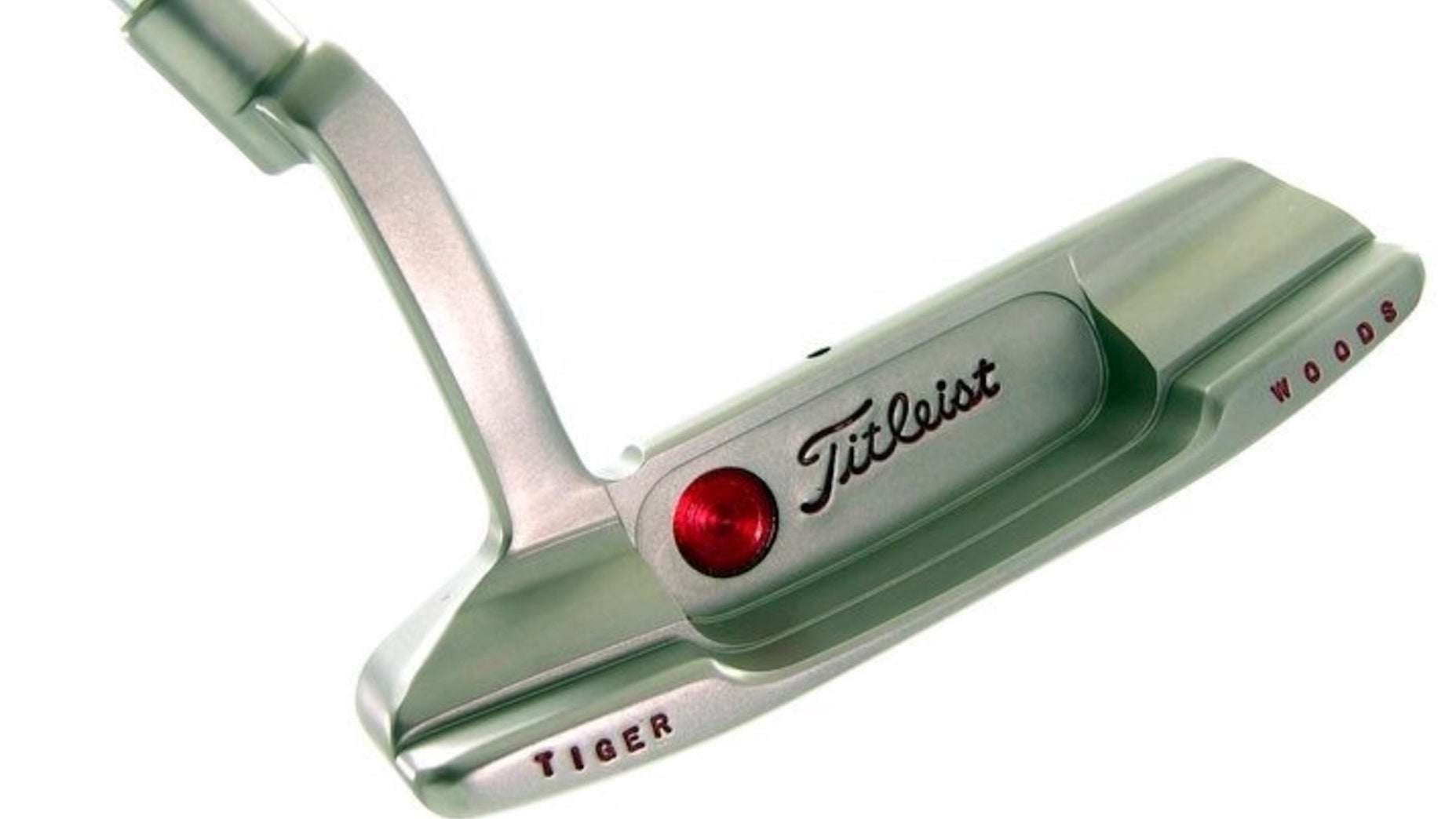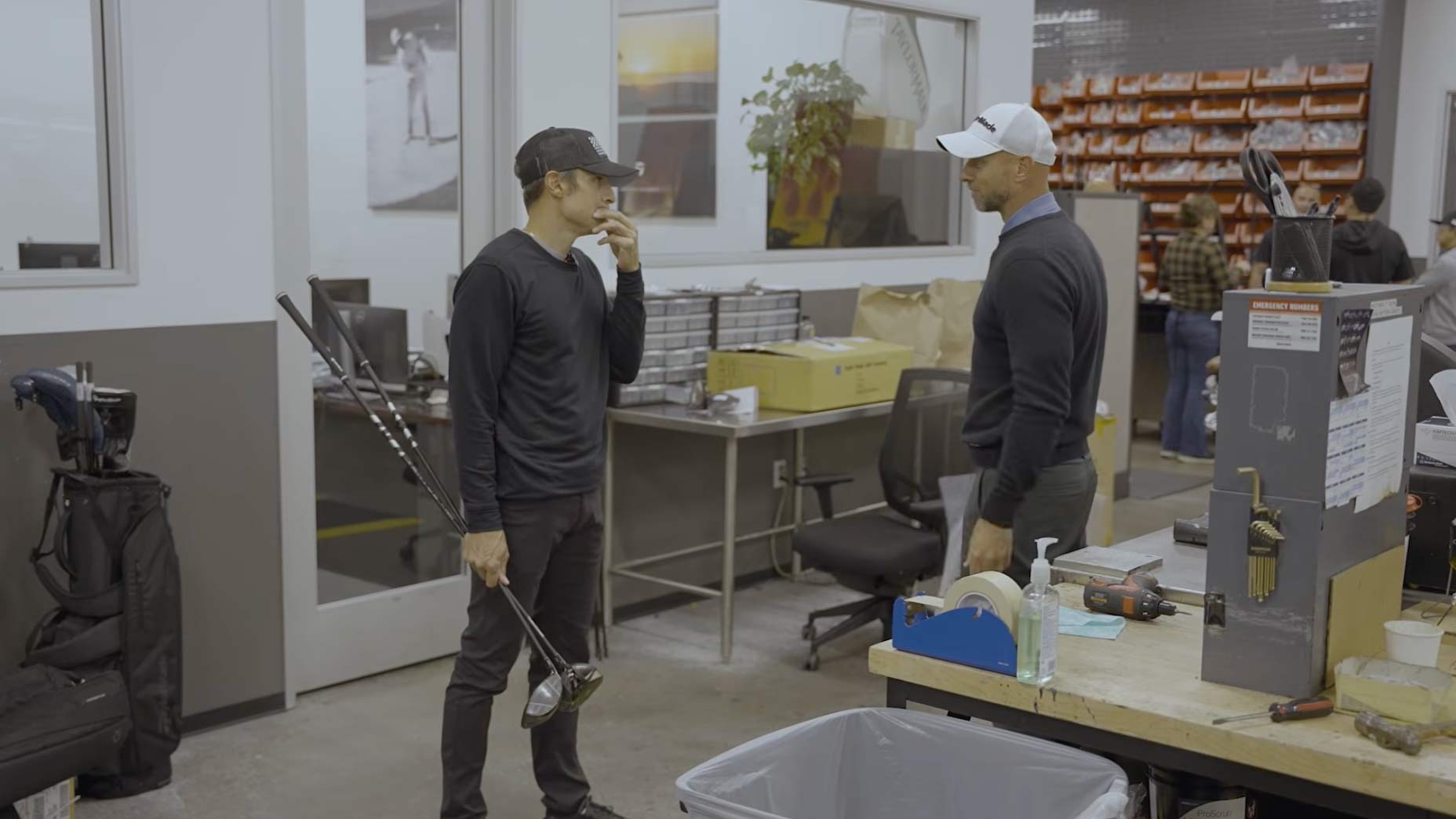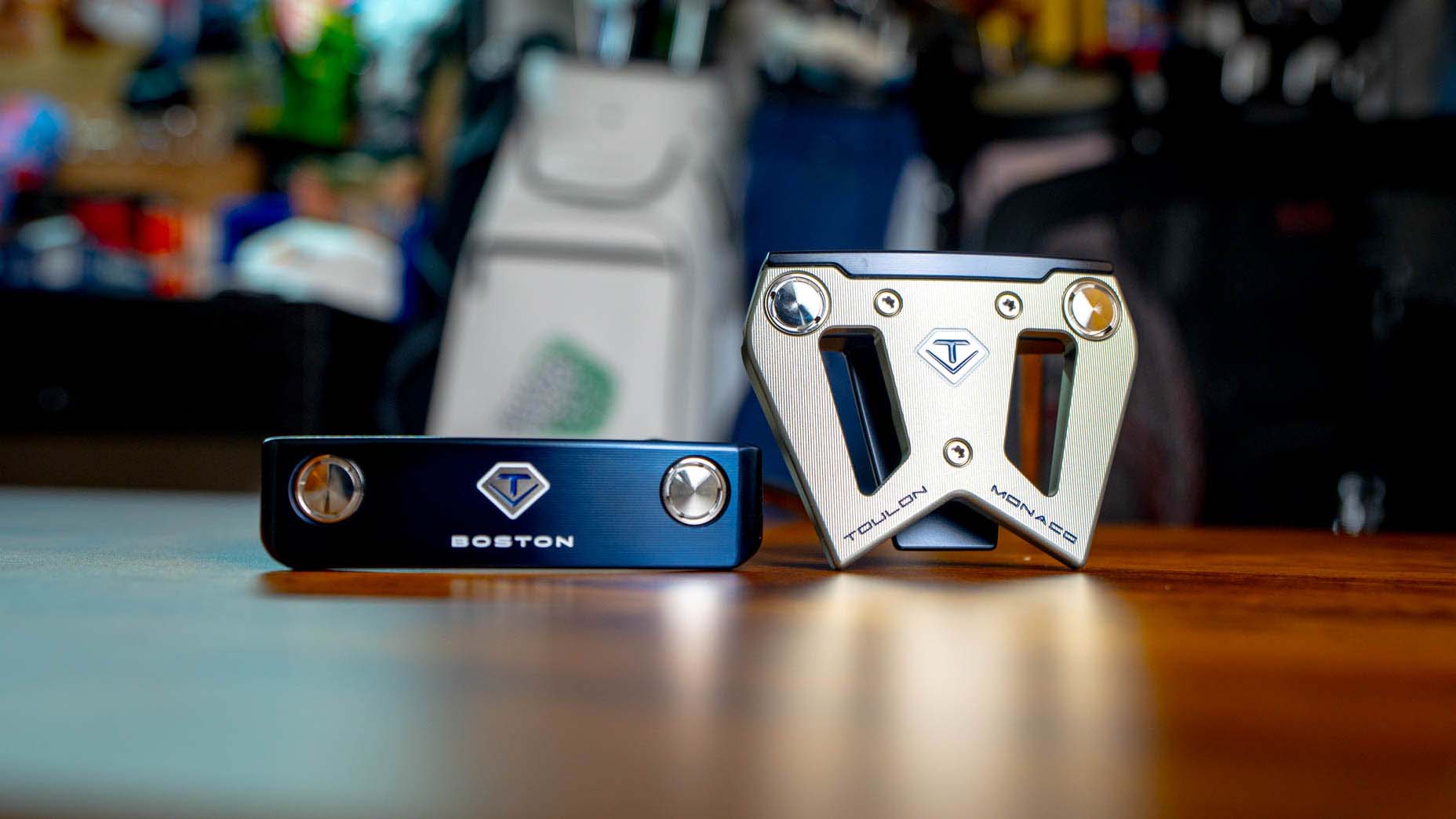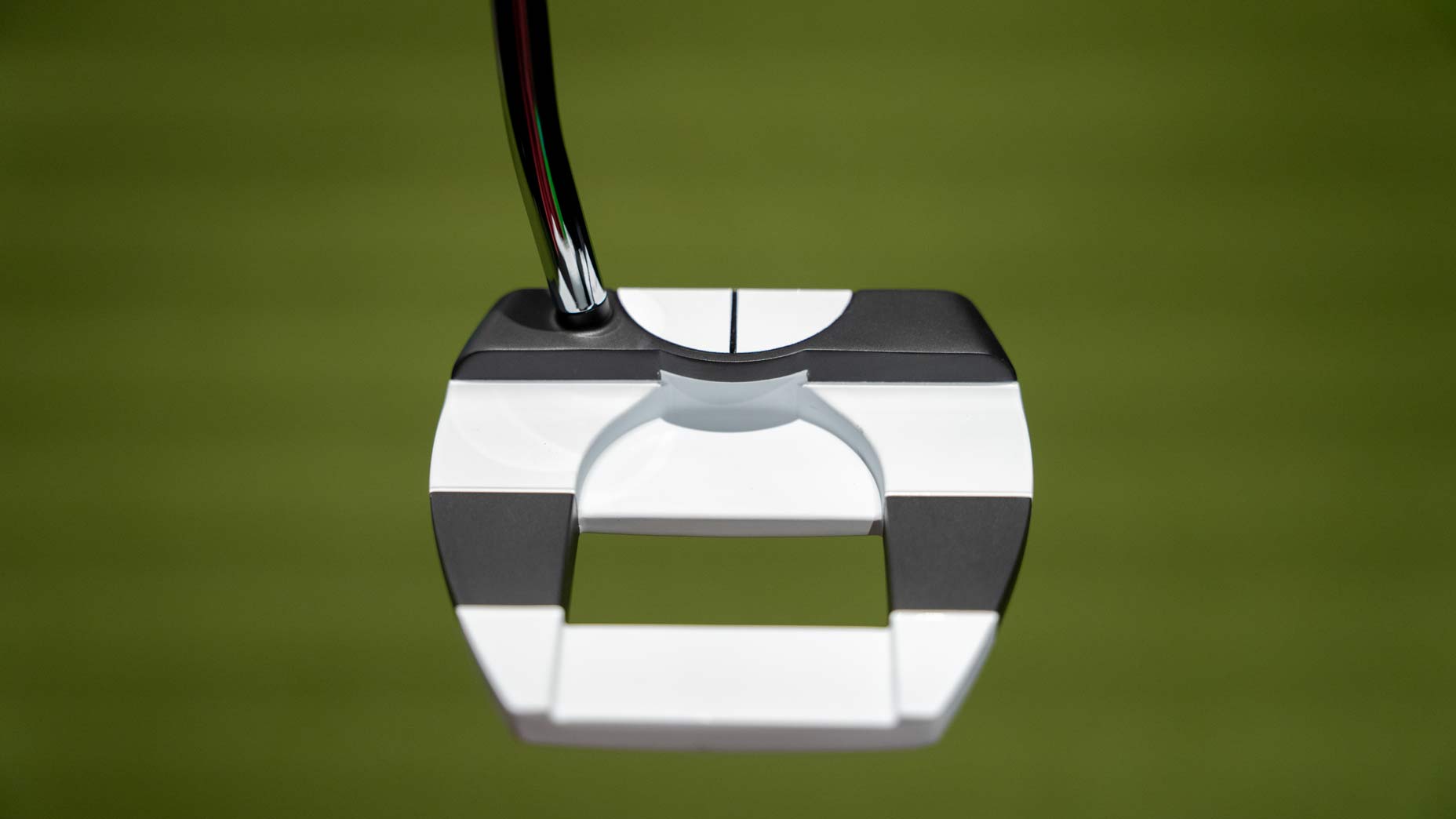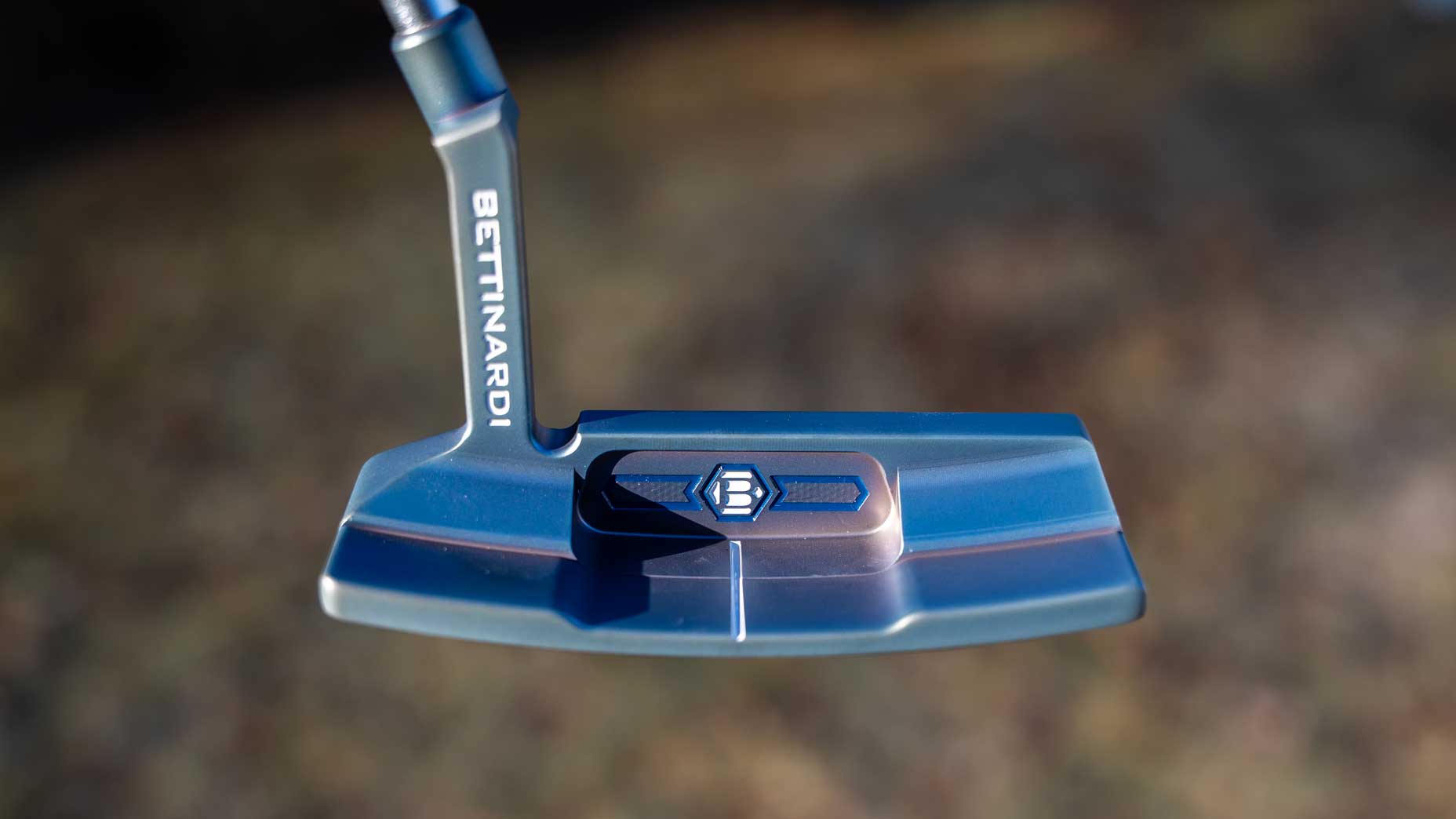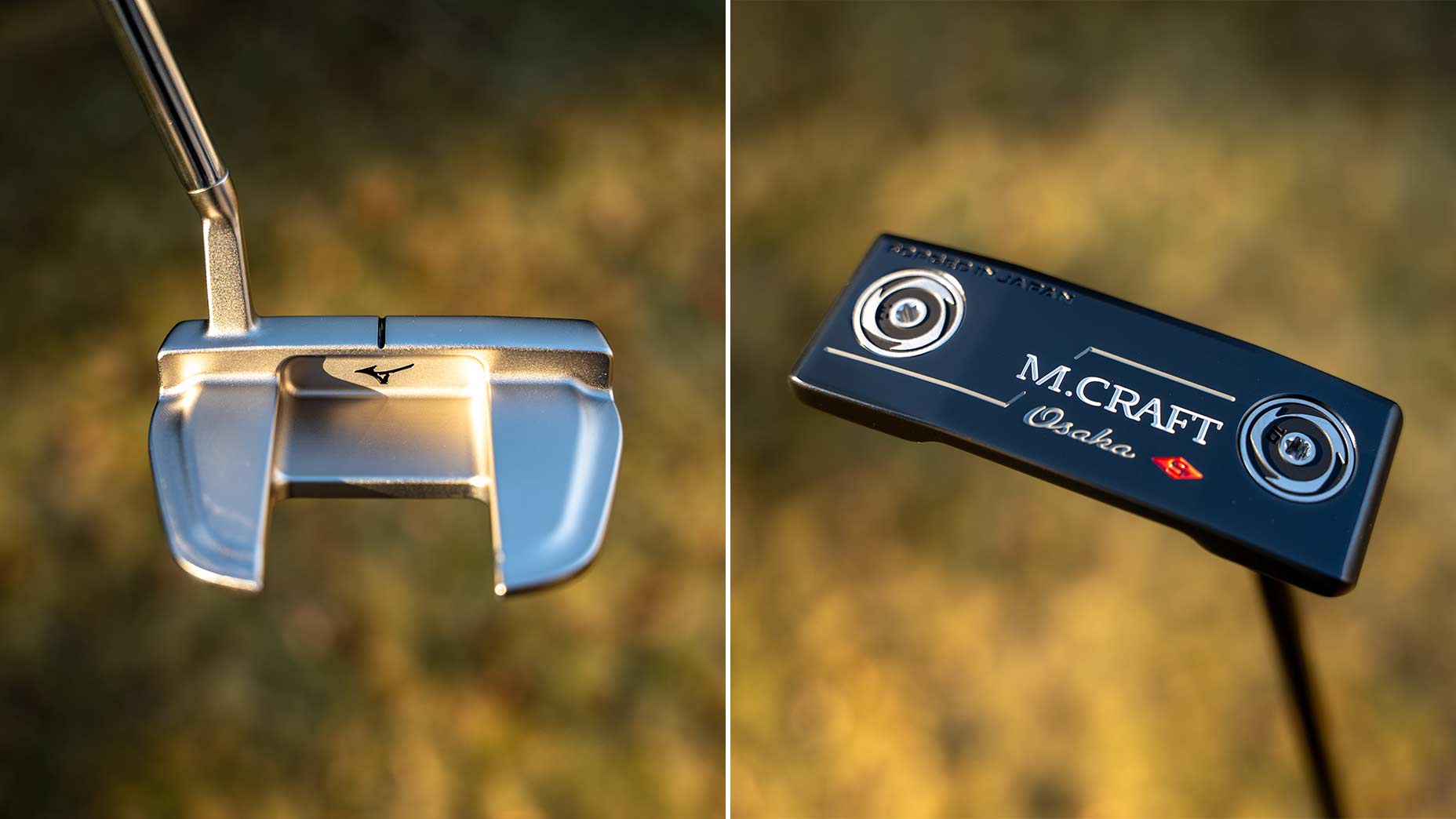A few weeks ago, I was made an offer I couldn’t refuse.
Ryan Carey, co-founder of Golden Age Golf Auctions, was selling a Tiger Woods backup putter on his auction website that was made personally by Scotty Cameron for Woods in 2002. Like Woods’ longtime gamer putter – the one he used to capture 14 of his 15 career major victories – his backup is a Newport 2 GSS putter, outfitted with the famous “cherry bomb” red dots, red Titleist Script, and “Tiger Woods” stamped on the back bumpers.
With the backup putter in his possession, I met Carey at True Spec Golf in Boston to try it out for myself.
Wait, to actually hit putts with it?!
Yes, to actually hit putts with it. On top of that, Carey said he also had a few iconic putters from golf history he wanted me to try out.
See, I told you it was an offer I couldn’t refuse.
Tiger Woods’ famed Scotty Cameron putter sells for mind-blowing price tagBy: James Colgan
Obviously, I took Carey up on it and drove up from New Jersey to Boston to hit putts with Woods’ backup Scotty Cameron putter made in 2002, and some historical putters from the last 100+ years. I brought my gamer putter along to use a baseline for the testing session, and we had cameras rolling the entire time to capture footage.
If you’re interested in watching the video from the testing session, make sure to watch the video at the top of the story. For more on my experience hitting Woods’ backup putter, continue reading for my 3 takeaways.
The Nerves
You know when you purchase a new club and take it to the range for the first time, and you’re a bit nervous to even hit it so you don’t break or scratch it? Yeah, I had that feeling except ten times more intense.
Firstly, I knew this putter was valuable. I didn’t know it’d go for a whopping $393,300, but I knew it was at least a six-figure piece of merchandise. On top of that, Carey told me that I might be the first person to actually hit a putt with it since Woods himself. No pressure!
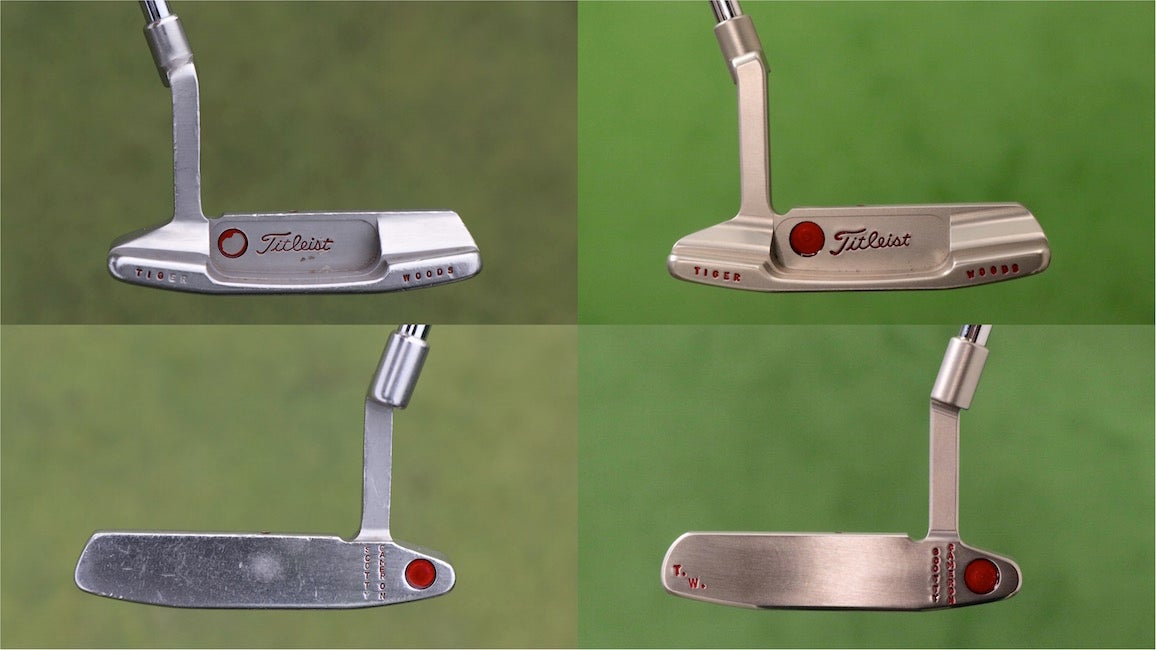
Woods’ real gamer has dents and scratches all over it from decades of use. It also has an insane wear mark on the center of the face because he never mis-hits a putt, apparently. His 2002 backup, however, is in pristine condition. It looks like no human has ever touched it with their fingers, let alone hit putts with it, so I was nervous to scratch it or ruin it in any way.
I settled the nerves enough to make a putt with it and give my version of Woods’ patented fist pump, but as Carey pointed out on Twitter, it took a few tries to get the ball in the hole.
The pure feel
Woods’ putter is made of a special German Stainless Steel material that’s supposed to be softer (and more expensive) than the more popular 303 stainless steel used to manufacture many putters on the market. But would it really feel that much different compared to my Scotty Cameron Teryllium Santa Fe gamer putter?
The answer was a resounding yes.
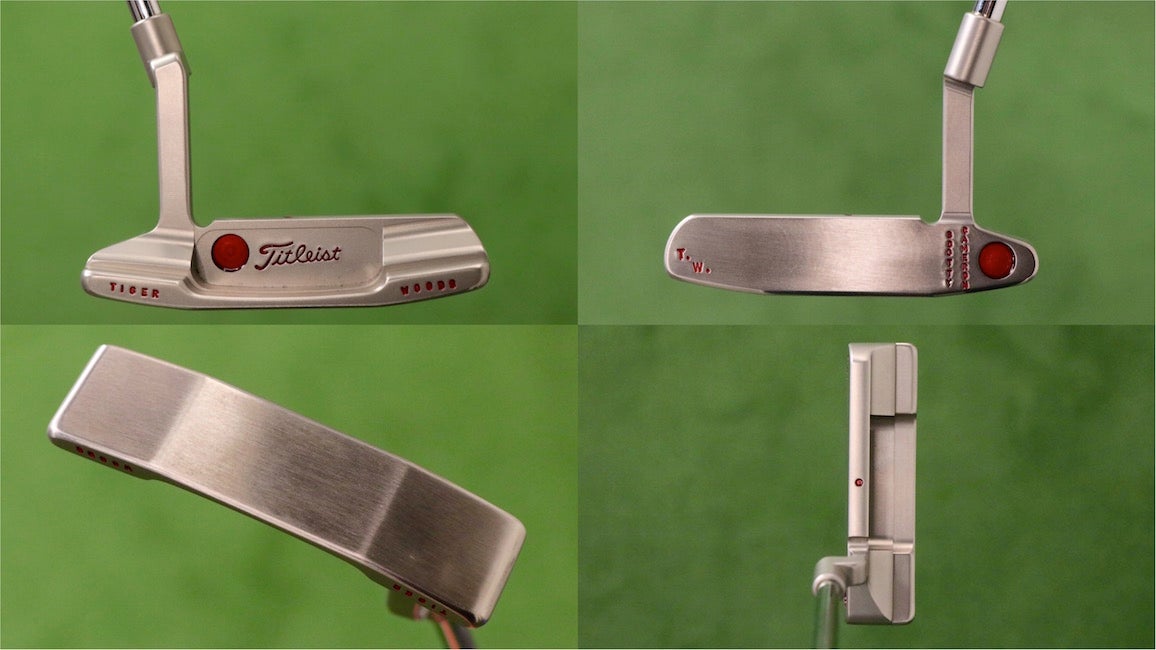
I always thought I liked the feel of my putter, but that was until I hit Woods’ backup putter. His putter felt solid, yet buttery soft off the face. In comparison, my putter felt hollow, click-y, and unforgiving.
When you’re rolling a putter that sells for $393k, you expect to be blown away. But wow, I’ll never forget the feeling I got in my hands when making contact with that putter. Simply pure.
Dots different
From a practical standpoint, Woods’ putter isn’t that much different than other putters you can buy off the shelf. It has a popular Anser-style shape with a plumber’s neck, weighs in at 326 grams (slightly lighter than today’s modern putters), and has standard length, loft and lie angle. While the grip is slightly smaller than I would prefer, there’s nothing out of the ordinary about the physical head design – aside from the iconic aesthetics, of course.
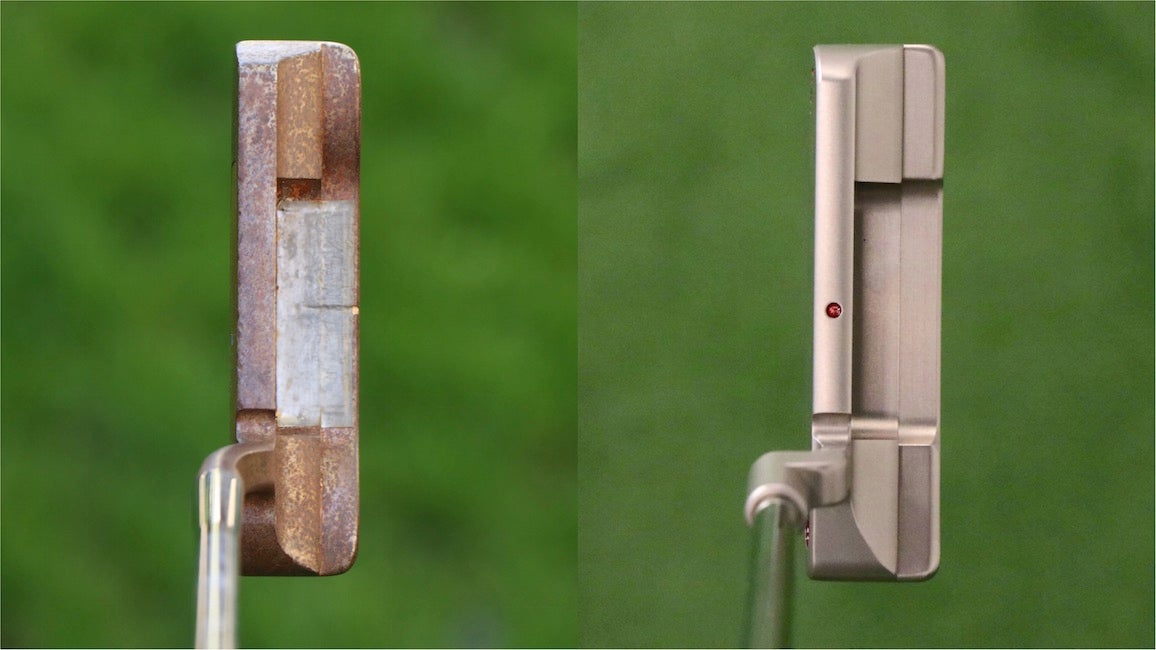
That being said, I did find that putting with a single dot as the sightline was much different than using a line on the back flange. I would have to do more testing to see if a dot is truly right for me, of course, but I found it easier to find the center of the face at impact using the dot. It changed the way I even thought about the stroke because I was focused on returning that single dot back to the center of the golf ball.
The only drawback to the dot was that I felt a bit lost when it came to alignment. Aligning a dot seemed more difficult than lining up an actual line. Obviously, Woods has had no problems making putts throughout the years, but the single-dot sightline has me thinking about making a change.
When it comes to finding the correct putter sightline for you, I highly recommend seeking out a trusted fitter or local professional who can help you test out different models to see what suits your stroke style best.
The “Other” Putters
As mentioned earlier, Carey also brought along a few iconic putters from throughout golf history for me to test. While we dive deeper into those designs (and the stories behind them) in the video at the top of the story, below is an in-hand look at each putter:
MacGregor Response ZT MI-615
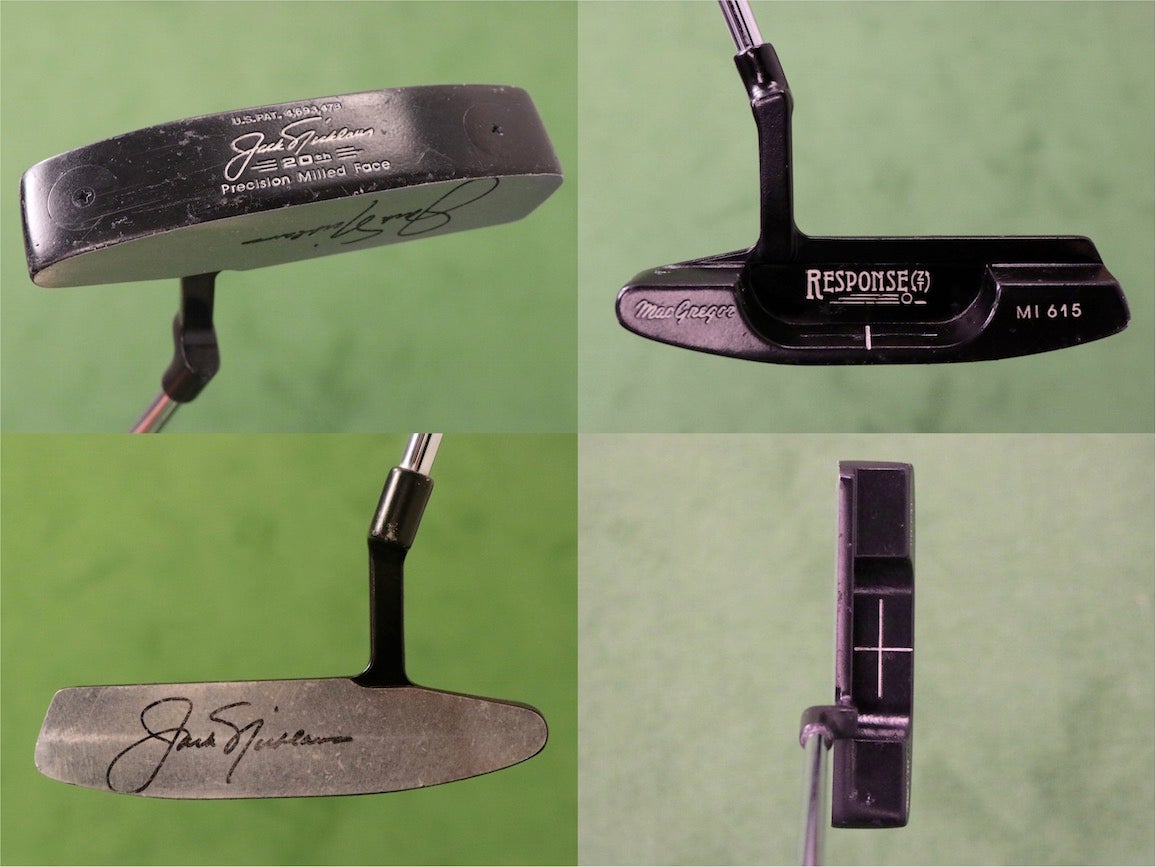
Ping Redwood “No Model”
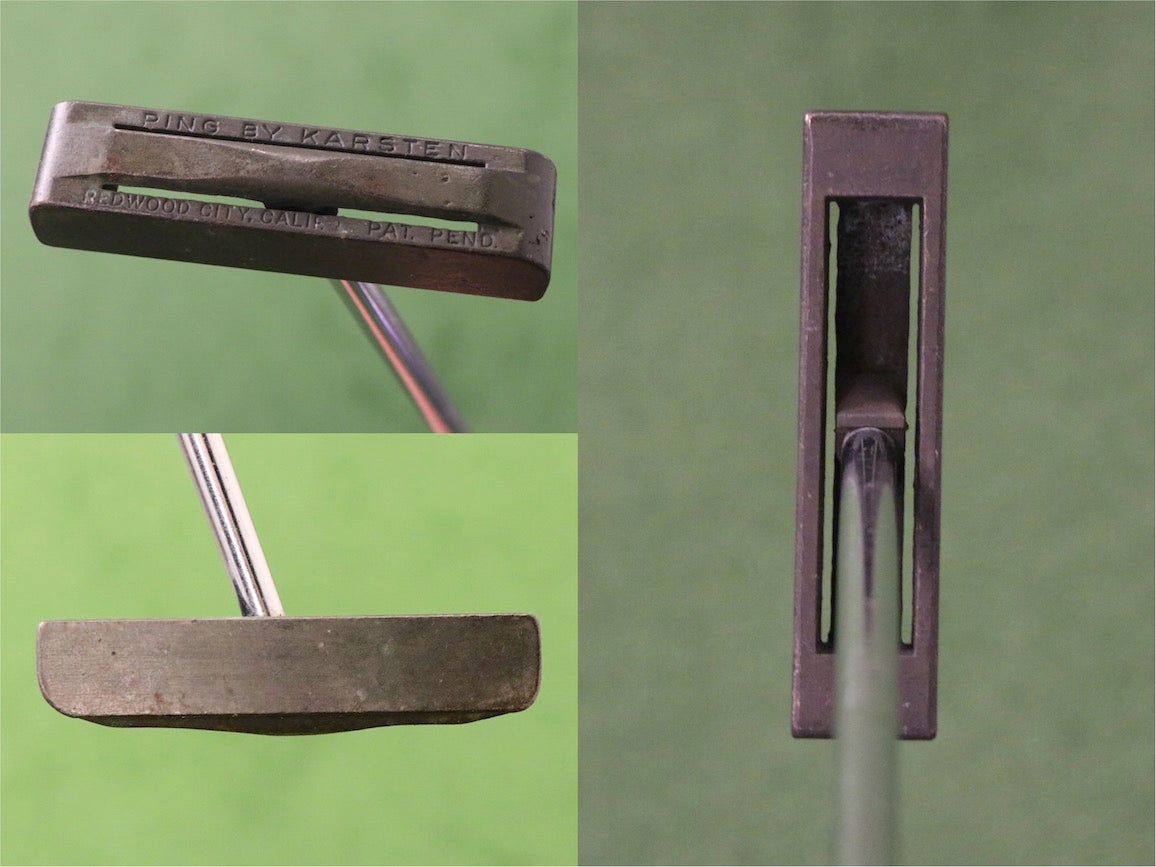
Spalding Calamity Jane Kro-Flite
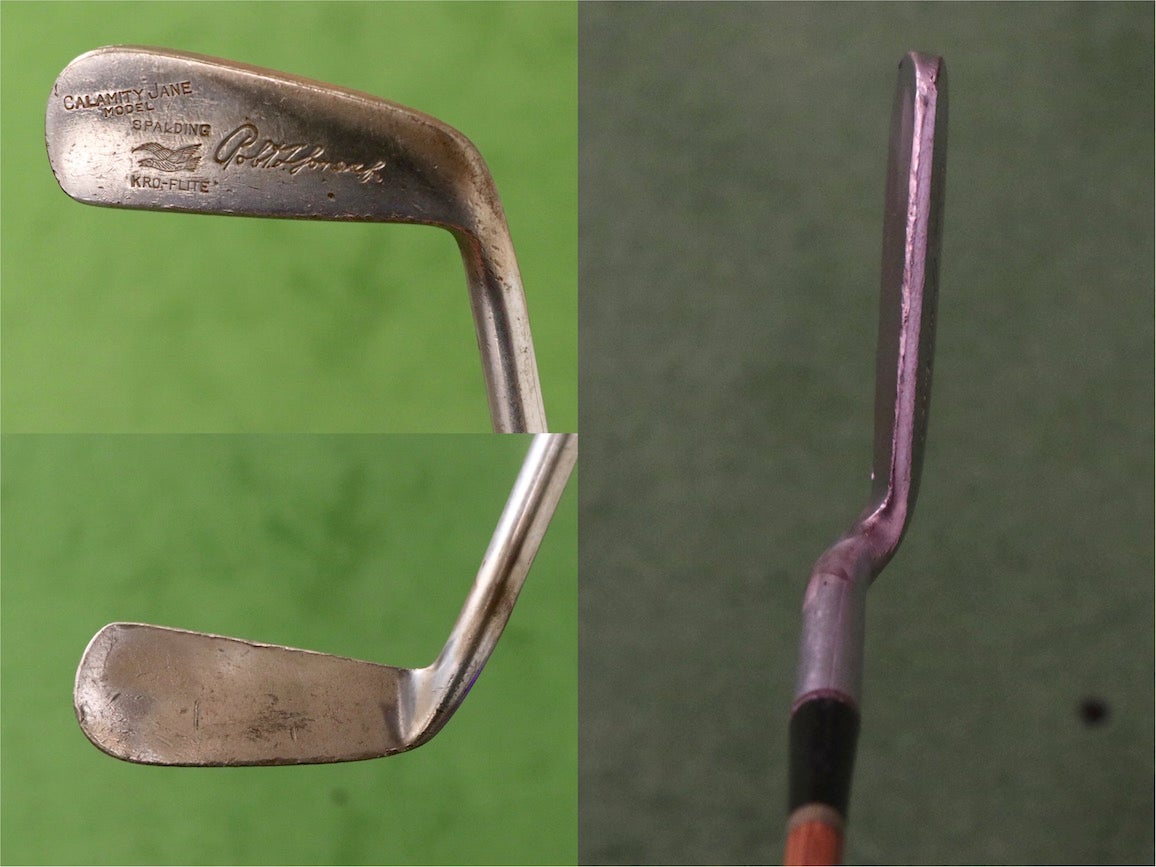
Robert Simpson Long Nose
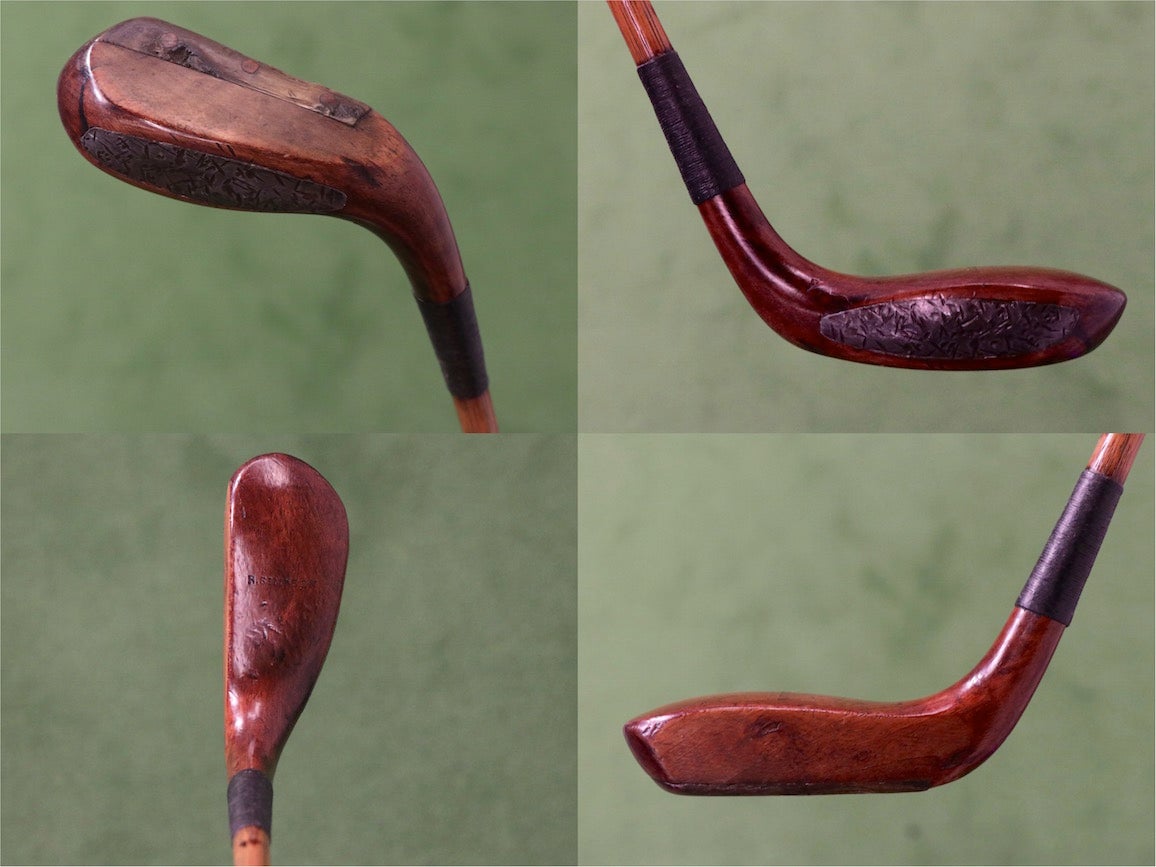
Want to overhaul your bag for 2021? Find a fitting location near you at GOLF’s affiliate company True Spec Golf. For more on the latest gear news and information, check out our latest Fully Equipped podcast below!
